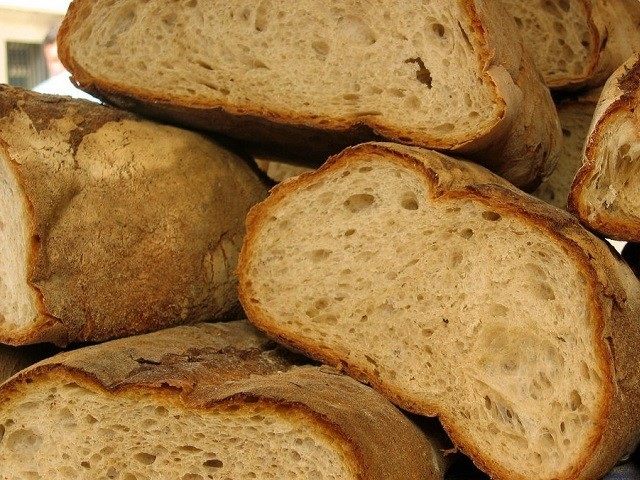HOUSTON, March 10 (UPI) — Eating too many carbohydrates such as potatoes, bagels or cereal increases the risk for lung cancer, especially among people who have never smoked, according to a recent study.
A high glycemic index, a measure of the effect of carbohydrates on blood sugar levels, was linked to a greater chance for developing lung cancer, researchers at the University of Texas MD Andersen Cancer Center found.
Lung cancer is the second most common form of cancer in men and women and is most commonly associated with smoking cigarettes. Previous research has shown that eating a lot of red meat, saturated fats and dairy can increase risk for the disease, however carbohydrates have not previously been associated with it.
While increased levels of carbohydrates can increase the risk, the researchers said the quality of carbohydrates, rather than the quantity, has the strongest effect. Foods such as white bread and puffed rice cereal are highly refined, which is why the researchers suggest swapping them out for whole-wheat or pumpernickel breads and pasta.
“The results from this study suggest that, besides maintaining healthy lifestyles, such as avoiding tobacco, limiting alcohol consumption and being physically active, reducing the consumption of foods and beverages with high glycemic index may serve as a means to lower the risk of lung cancer,” Dr. Xifeng Wu, a professor of epidemiology at the University of Texas, said in a press release.
For the study, published in the journal Cancer Epidemiology, Biomarkers and Prevention, the researchers assessed 1,905 newly diagnosed lung cancer patients, comparing their diets, glycemic index, glycemic load and lung cancer risk with 2,413 healthy people.
The researchers found a 49 percent increased risk of lung cancer among participants with the highest daily glycemic index, compared to those with the lowest. The strongest link between a high glycemic index and lung cancer was among people who never smoked, who were diagnosed with squamous cell carcinomas, and those with less than 12 years of education.
Glycemic load, or the amount of carbohydrates a person consumes, was not linked to lung cancer risk, the researchers reported. Among smokers, a high glycemic index was shown to increase risk by 31 percent, though the researchers said the much more significant risk factor lowers the potential cancer-causing effect.
Study participants with more than 12 years of education saw their risk increase by 33 percent, compared to a 77 percent increase for those with less than 12 years. Education level is a proxy for socioeconomic status, which can indicate a lower quality diet and increased likelihood for smoking.
Although the researchers say the study did not consider diabetes, high blood pressure or heart disease when calculating risk, and their results could be tainted by participants faulty memory of what they ate, they said moderating diet may lower risk for cancer, in addition to other chronic conditions that contribute to cancer.

COMMENTS
Please let us know if you're having issues with commenting.